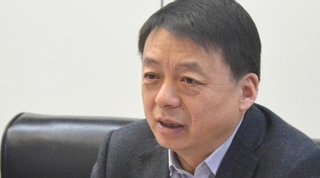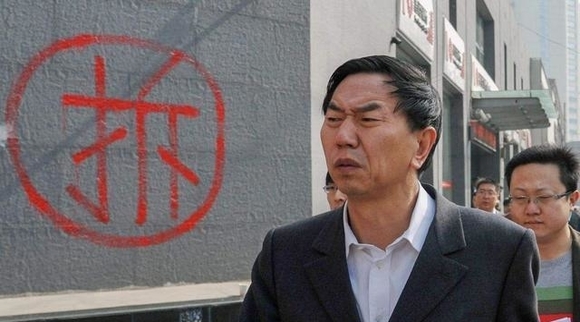a recent plan aims for predictable, rational and sustainable local government via new measures of accountability
The 2nd 5-year plan to establish ‘law-based’ government appeared on 11 Aug 2021. Building on signature themes of Xi Jinping, it claims to add coherence to long-term state initiatives proclaiming a more predictable and credible policy environment. The general public are yet to be reassured.
the centre holds sway
In the past, general policy guidelines emanated from the centre; local authorities enacted detailed policies. Under black-box conditions, outcomes depended on local players, their assumptions and interests. This fuelled corruption, rent-seeking and cycles of opening and closing.
The new plan, in contrast, underlines local officials' lifelong accountability with central institutions and agencies holding sway across all potential issues from the micro to the macro level. Rather than separation of powers (or ‘rule of law’), ‘law-based’ implies institutional pressure on officials that overrides their ingrained preferences.
cracking down on the boss
Some old buzz-phrases may be phased out: yibashou or ‘strongman boss’ and dingyuyizun or ‘settled by one authority’. Expressions of all authoritarian societies, they have given rise in the PRC to unexpected side effects, like the 'tournament system', whereby competition for bureaucratic promotion drives officials up to and over the bounds of the law. Hierarchy will remain indispensable, but the plan constrains strongmen from wielding unspecified ‘authority’. They must now consult, and justify their decisions as ‘rational’. Their remit is to be delineated and strictly kept to, but the tournament regime may continue to push their behaviour to extremes.
Official decisions should follow given procedures, including seeking expert advice and undertaking public consultation. Being held to account will include disclosing and recording these inputs.
Beijing, nonetheless, wants local officials to be on the front foot with emerging issues, at the same time as being 'faithful tools of the Party'. Agencies still evaluate subordinates by counting the documents they generate. Ill-designed criteria have led to this formalism with never-ending meetings and documents, despite ‘rigorous’ recording procedures and public hearings. In threatening to bypass messy, but more productive, local to-and-fro and imposing top-down rulings and (perfunctory) due process, the new plan risks swinging too far the other way. This may only result in moving ownership of policy shortfalls upstream to central players.
fostering law-based problem solving
Grassroots governance implies more than social control. Catering to ever more diverse welfare and service needs, welfare agencies should, Beijing insists, lie within the Party-state.
Consolidating this trend, legislation and policing are to serve ‘bread-and-butter interests’: food, medicine, social security, work safety, urban services, transport, education, etc. The plan sets out procedural norms of arbitration and review, meant as tools for daily conflict resolution and citizen complaints.
This is part of the two-century history of moving to a modern society wherein institutions and legal norms replace dependency relations, allowing for impersonal, contractual arrangements. This is all the more critical in the digital age.
But officials at the grassroots are often overwhelmed: ‘satisfying all people’s bread-and-butter interests’ is beyond their capability and means. Cities and provinces have in recent years often shed their obligations by issuing subordinates copious ‘to-do’ lists, minus any accompanying ‘how-to’ guidance. Worse, the subordinates in their silos can countermand each other.
institutionalising crisis response
The plan reflects new and unheard-of challenges faced by the state. COVID-19, for one, has demonstrated that local crisis management can no longer be improvised. Emergency monitoring at all levels is being upgraded to ensure that future crisis response is planned and accountable.
Zhengzhou’s subway flooding in July 2021 showed a general lack of ‘baseline thinking’, i.e. imagining a worst-case scenario. Stricter crisis management is intended to remedy this. Beijing is likely to provide funding support and technical instructions for localities, and will include crisis preparedness in performance criteria.
digital governance: threat/opportunity
Tech giants are framed in the plan as threats to Party control. Digital finance, big data, AI and cloud computing are all in the regulatory firing line. This echoes the current concern over abuse of user privacy by the giants, and their fuelling of disorderly expansion of capital.
Yet the plan also hails e-governance and digitally-enhanced state efficiency; the momentum is maintained of 'internet+ governance' and reforms to ‘modernise governance’ launched in 2013. A unified central information-sharing platform should be ready by 2022 (provinces will construct their own by 2023), as well as a supervision platform for improving online monitoring and law enforcement.
Many localities struggle to match the pace set by Beijing. Different localities and agencies use different data formats that are often incompatible and of inconsistent quality. Grassroots officials complain of poor system maintenance, lack of confidentiality or reliable digital signatures and inaccessibility for senior users.
rationality vs hierarchy
While imperfect, state action will become more predictable and ‘rational’ under the plan. Firms will struggle to gain favourable policy treatment simply by winning over a local official.
Headway will likely be made in moving away from face-to-face status-based problem solving toward impersonal, contractual relations. Norms, standards and expectations in legislation will reduce uncertainty and minimise mysterious 'local conditions'. Yet self-righteousness—the state’s sense of being entitled to dominate social sectors at any scale—makes solving the issue of rigid, redundant governance a recipe for more of the same.
profiles

Zhou Li’an 周黎安 | Peking University Guanghua School of Management deputy director
Zhou is an influential applier of the ‘political tournaments’ framework (pioneered by Peking University sociologists), which explains official incentives and their use in central governance. Under tournaments, competition for promotion based on simple numerical criteria may energise official action on high-profile issues, but sideline all other issues. An economics doctorate from Stanford in 2002 preceded Zhou’s teaching career in political economy at Peking University, taking in industrial economy and economic transfer. He has been dean of applied economics since 2011 and deputy director of Guanghua School of Management.

Ying Songnian 应松年 | China Administrative Law Society honourary president
Ying champions clear boundaries of executive power in law-based government. The incomplete market economy leaves the state still controlling some fields which it has neither the skill nor the capacity to answer for, he claims. A pioneering expert in administrative law, Ying helped write textbooks and draft many administrative laws. A professor at China University of Political Science and Law since 1983, he was the first to teach masters students in administrative law, and gained tenure in 2009.

Ma Huaide 马怀德 | China University of Political Science and Law president
A supporter of rules-based governance, Ma argues it should earn the same kudos as promoting the economy. Hence his idea of a ‘rules-based’ GDP, which would measure levels of law-based rule in localities. To counter the current political tournament system, this new GDP would make rules-based government a real force. A student of Ying Songnian 应松年 (see above) in the 1980s, Ma was awarded the first PRC doctorate in administrative litigation law. He has served on many law drafting teams, including for the Administrative Litigation Law. Becoming president of China University of Political Science and Law in May 2019, he frequently advises the senior leadership.
